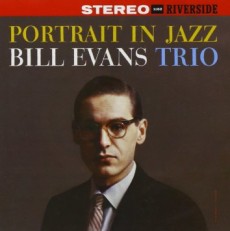
Daily Dose Of Jazz…
William John Evans was born August 16, 1929 in Plainfield, New Jersey and grew up in a turbulent household of abuse. While staying with his aunt family somewhere between age 3 and five he soon began to play what he had heard during his brother’s class and soon he would also receiving piano lessons. At age 7, Bill began violin lessons and also flute and piccolo but eventually dropped those instruments, though it is believed they later influenced his keyboard style.
From age 6 to 13 Evans would only play classical music scores of Mozart, Beethoven and Schubert. During high school he was exposed to Stravinsky and Milhaud but also the jazz of Tommy Dorsey and Harry James. At 13 he stood in for a sick pianist in Buddy Valentino’s rehearsal band where he got his first deviation from the written music, in an arrangement of Tuxedo Junction, leading him to listen to Earl Hines, Coleman Hawkins, Bud Powell, George Shearing, Stan Getz and Nat King Cole among others.
Bill was soon playing dances and weddings throughout New Jersey and then formed his own trio, met Don Elliott, and bassist George Platt who taught him the harmonic principles of music. He would go on to study at Southeastern Louisiana University and in 1955 he moved to New York City where he worked with bandleader and theorist George Russell. In 1958, he joined the Miles Davis Sextet, where he was to have a profound influence. In 1959, the band, then immersed in modal jazz recorded Kind of Blue, the best-selling jazz album of all time.
In late 1959, Evans left the Miles Davis band and began his career as a leader with Scott LaFaro and Paul Motian, a group now regarded as a seminal modern jazz trio. In 1961, ten days after recording the highly acclaimed Sunday at the Village Vanguard and Waltz for Debby, LaFaro died in a car accident. After months of seclusion he re-emerged with bassist Chuck Israel. In 1963, Evans recorded his first innovative solo project Conversations with Myself, and in ’66 met bassist Eddie Gomez who he would work with for eleven years.
He would work with Don Elliott, Tony Scott, Mundell Lowe, Jerry Wald, Lucy Reed, George Russell, Dick Garcia, Art Farmer, Barry Galbraith, Milt Hinton, Joe Puma, Charles Mingus, Oliver Nelson, Eddie Costa, John Coltrane, Cannonball Adderley, Paul Chambers, Philly Joe Jones, Sam Jones, Marc Johnson, Tony Bennett, Marty Morell, Joe LaBarbera and the list goes on.
Despite his success as a jazz artist, Bill suffered personal loss and struggled with drug abuse. Both his girlfriend Elaine and his brother Harry committed suicide, and he was a long time user of heroin and later cocaine. As a result, his financial stability, personal relationships and musical creativity all steadily declined during his later years.
On September 15, 1980 pianist, compose and arranger Bill Evans who played in the modal, third stream cool and post-bop genres, passed away at age 51in New York City from complications due to peptic ulcer, cirrhosis, bronchial pneumonia and untreated hepatitis. His recordings for Riverside, Fantasy and Verve record labels left a seminal collection for the avid and casual listener, he was inducted in the Down Beat Jazz Hall of Fame, was nominated for 31 Grammys, winning seven awards, and was posthumously awarded the Grammy Lifetime Achievement Award.
More Posts: piano


